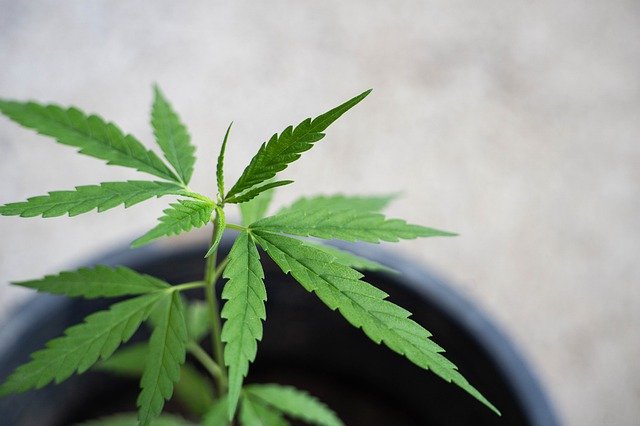This story originally appeared on The Fresh Toast.

As time goes on, alternative plant medicine, such as cannabis, are slowly changing the way pain management is viewed and executed.
Did you know that in 2019, chronic pain impacted one-third of the U.S. population? This number continues to rise, and so does the consumption of various substances to help manage and/or combat pain.
Currently, different NSAIDs (non-steroidal anti-inflammatory drugs), acetaminophen, and opioids are used the most often for the treatment of pain. However, there’s no guarantee that these drugs will be fully effective in eliminating pain nor is there a guarantee that these drugs won’t cause any adverse side effects.
Nowadays, cannabis and its many cannabinoids are being pursued more because of their medicinal and therapeutic properties.Overall, though, alternative plant medicine is becoming a part of thousands of people’s routines and lifestyles for numerous reasons. Here are a few main reasons why.
Understanding Types of Pain and How to Treat It Properly
Oftentimes, when someone experiences pain, their primary mission is to eliminate it and use or consume a product to achieve relief. Before treating pain though, it’s important to understand the characteristics of the pain itself, the severity of it, and the nature of it. For example, is the pain acute or chronic? Is it neuropathic or inflammatory pain? Is the pain caused by an injury, illness, ailment, or a new medication? After understanding the type of pain, finding an appropriate treatment method is the next step.
When evaluating numerous treatment methods, it’s essential to understand the efficacies of different treatment options and potential adverse effects/reactions. From here, an individual should be able to find a suitable treatment method that aligns with the type of pain they’re experiencing.
Traditional Medicines Versus Alternative Plant Medicines
Although opioids, NSAIDs, acetaminophen, and various OTC (over-the-counter) drugs tend to be the norm for pain management and/or relief, cannabis and its array of beneficial cannabinoids are growing in demand and usage.
Specifically, to avoid potential adverse side effects and/or the risk of drug addiction or dependency, for many, opioids are taking a back seat, and cannabinoids are being pursued instead. Despite traditional medicines demonstrating their efficacy in many different situations and among different people, issues can still arise post-consumption.
For example, NSAIDs can be beneficial, but they’ve also been associated with severe complications involving the gastrointestinal, cardiovascular, and renal systems. Next are opioids, which have proven their effectiveness in different situations, but they’ve also demonstrated their ability to cause cognitive deficiencies, motor impairment, and respiratory depression. Opioids also unfortunately represent a substantial addiction and dependency risk among specific groups of individuals.
As time goes on, alternative plant medicine, such as cannabis, numerous cannabinoids, and terpenes, are slowly changing the way pain management is viewed and/or executed.
Cannabis For Pain Management & Treatment
The cannabis plant contains over 100 cannabinoids, but some of them are more well-known such as Cannabidiol (CBD) and Tetrahydrocannabinol (THC). Numerous cannabinoids are medically and therapeutically beneficial in multiple ways, but CBD, THC, Cannabichromene (CBC), and Cannabigerol’s (CBG) analgesic properties stand out. So far, it has been found that CBC contains both anti-inflammatory and analgesic properties. Whereas, CBG has proven its stronger analgesic activity than THC.
Aside from different cannabinoids’ analgesic properties, various terpenes found on the cannabis plant are analgesics as well, especially myrcene. One 2008 study expanded on this and stated that: “Myrcene is analgesic, and such activity, in contrast to cannabinoids, is blocked by naloxone suggesting an opioid-like mechanism.” Another terpene that contains analgesic and anti-inflammatory attributes is β-caryophyllene.
In addition, cannabinoid analgesics have generally been well-tolerated within clinical trials. The World Health Organization (WHO) also reported that CBD is non-psychoactive, non-toxic, non-addictive, and has a good safety profile.
Although there’s more to learn about cannabinoids and pain management, various surveys of cannabis users have shed light on the substitution of cannabis products for opioids. Specifically, one 2017 survey focused on American and Canadian cannabis users, and the following was reported: “Our findings are consistent with prior surveys of American and Canadian marijuana users in which substitution of marijuana for opioids was prevalent due to better symptom management and fewer adverse and withdrawal effects.”
 Investment value finders Investment value finders
Investment value finders Investment value finders



